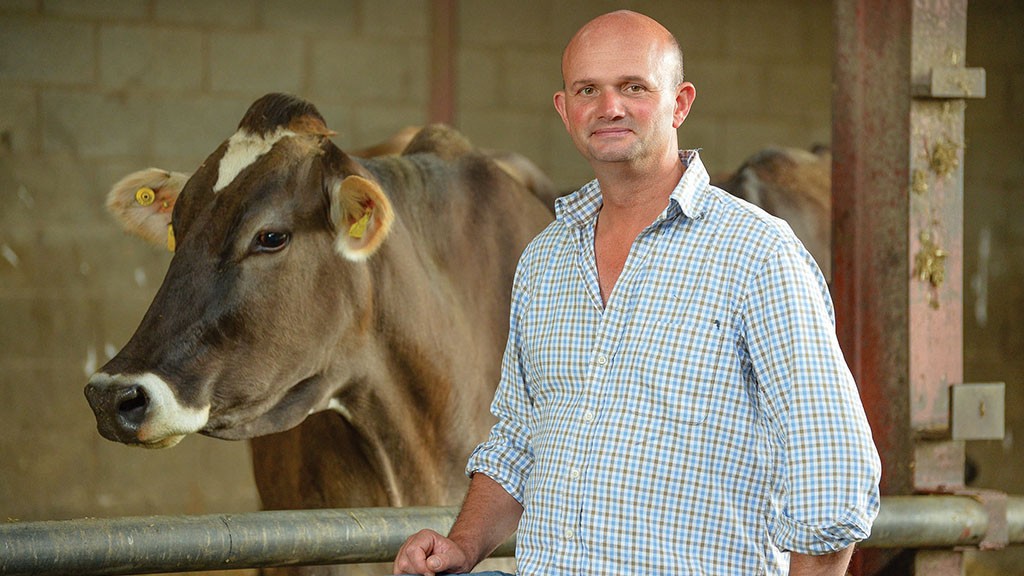
A new partnership between Government, academics and farmers to tackle bovine TB must build on the progress England has made in driving down disease in cattle and be guided by science and evidence, not populism.
Cheshire dairy farmer Phil Latham and Gloucestershire beef producer David Barton have both been at the sharp end of bovine TB, seeing dozens of animals slaughtered and fighting to keep businesses under crippling restrictions afloat.
Vaccination
They join three other farmers on Defra’s new Bovine TB Partnership – a diverse group which includes ecologists such as Prof Rosie Woodroofe, a long-standing opponent of the badger cull who is in favour of vaccination and biosecurity measures as a means of controlling bTB.
The group met for its inaugural meeting earlier this month.
Mr Latham said: “This is certainly a diverse group with a range of views on what should be the way forward, but one thing you cannot argue against is the tremendous success we have seen in reducing herd incidence rates, with the Government’s own evidence showing badger culling has supported a 50 per cent reduction in bTB.
“The current science which explains that is what ought to be forming Government policy, not the loudest voices in the room.
“For some, success is not eradicating bTB, success is just not killing badgers.”
Culling
It came as farmers were encouraged to respond to Defra’s eight-week consultation as it sought to phase out of intensive badger culling in England, a move which the NFU branded as ‘political rather than scientific’.
Mr Barton, whose farm sits in the high risk area, said: “We have to follow the science, the evidence and the data and I hope everyone is focused on the same thing.
“Over the last eight years a pretty strong partnership has been built up between the Government, APHA, Natural England, farmers and other stakeholders and the data shows what we have done has worked.
“That would evaporate if the Government was to step in and signal a step away from using a strategy we know works to tackle bTB and it would be irresponsible to move away from this proven course of disease eradication.”
Both Mr Barton and Mr Latham said trust and confidence in the Government were both key as farmers were the ones who had to shoulder the cost burden.
Trust and goodwill
Mr Barton added: “Any change in direction of policy would damage all that trust and goodwill irreparably, very quickly.
“Our determination, time and effort and resource has given us these results.
“We believed in this policy in the face of a lot of people telling us it was the wrong thing to do and it was not going to work.
“Now we know it works. You only have to look at the HRA where we have about 800 fewer farms under restriction, that is 800 fewer families who are not weighted down under the stress and strain of being under these awful restrictions.
“We are culling fewer cattle and all at a time when we are looking for it harder than we ever have, gamma testing more cattle than ever. We cannot underestimate all that.”
Mr Latham added: “The hope and will is there. Time will tell if the Government listens to the science and looks at the evidence, or if it just makes a political decision.”
Members
John Cross – chairman
Stephanie Young
Paul Westaway (High Risk Area)
Di Wastenage (High Risk Area)
David Barton (High Risk Area)
Phil Latham (Edge Area)
Chris Addison (Low Risk Area)
Professor Rosie Woodroffe
Dr Sue Mayer
Dr Andy Robertson
Dr Gareth Enticott
Professor James Wood
Dr Jane Gibbens
Professor Rowland Kao
Sarah Tomlinson
Kate Bowen
Richard (Dick) Sibley
Member organisations:
NFU
British Veterinary Association
British Cattle Veterinary Association
Defra
Animal and Plant Health Agency
Natural England























